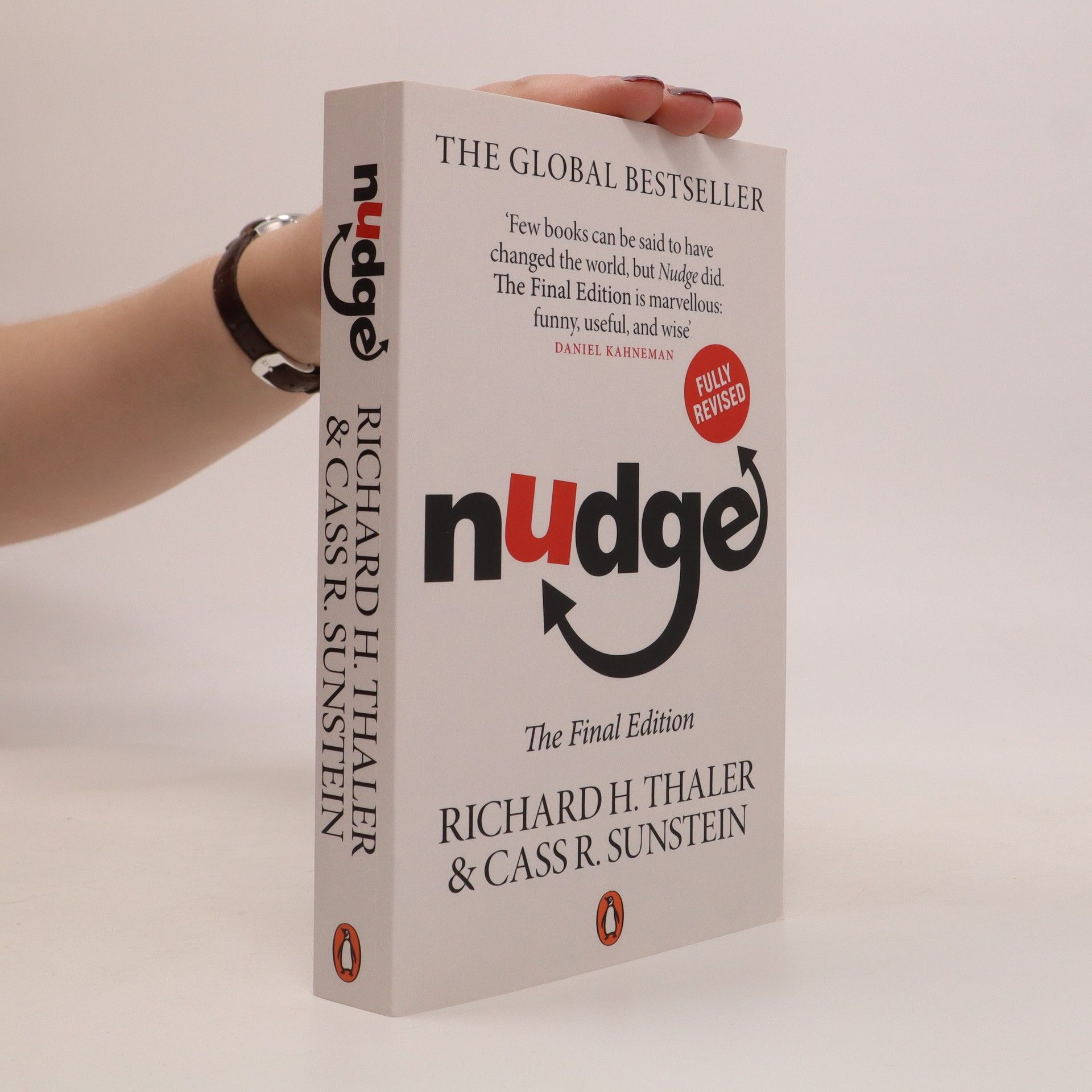FINALNE WYDANIE PRZEŁOMOWEJ KSIĄŻKI LAUREATA NAGRODY NOBLA Codziennie podejmujemy wiele rozmaitych decyzji, począwszy od tego, na co chcemy wydawać pieniądze, jaką szkołę dla dzieci wybrać, co jeść, po sprawy, o które chcemy walczyć. Często te decyzje są nietrafione. Powodem jest to, że będąc ludźmi, jesteśmy podatni na wszelkiego rodzaju błędy, które mogą prowadzić do bolesnych pomyłek. Kierujemy się partykularnymi korzyściami, a ponadto nie mamy cierpliwości, nie potrafimy być zawsze zdyscyplinowani i racjonalni. Co jednak zrobić, by nasze wybory były choć trochę racjonalne? O tym jest właśnie książka Thalera i Sunsteina poświęcona teorii impulsu (szturchnięcia), która głosi, że nie ma konfliktu między swobodą wyboru a przymusem. Libertariański paternalizm! Co należy zrobić, by ludzie podejmowali korzystne dla siebie decyzje? Szturchnąć ich! Koncepcja Thalera i Sunsteina jest istotnym wsparciem w budowaniu m.in. pracowniczych programów emerytalnych czy opieki zdrowotnej. Ludzie potrzebują impulsów!
Richard Thaler Book order (chronological)
Richard H. Thaler is an American economist whose work centers on behavioral economics. His research investigates how psychological factors influence economic decisions, challenging traditional assumptions of rational behavior. Thaler's insights have significantly advanced the understanding of human irrationality and its implications for markets and policy. His approach illuminates the complexities of economic decision-making, emphasizing the need to account for human psychology.


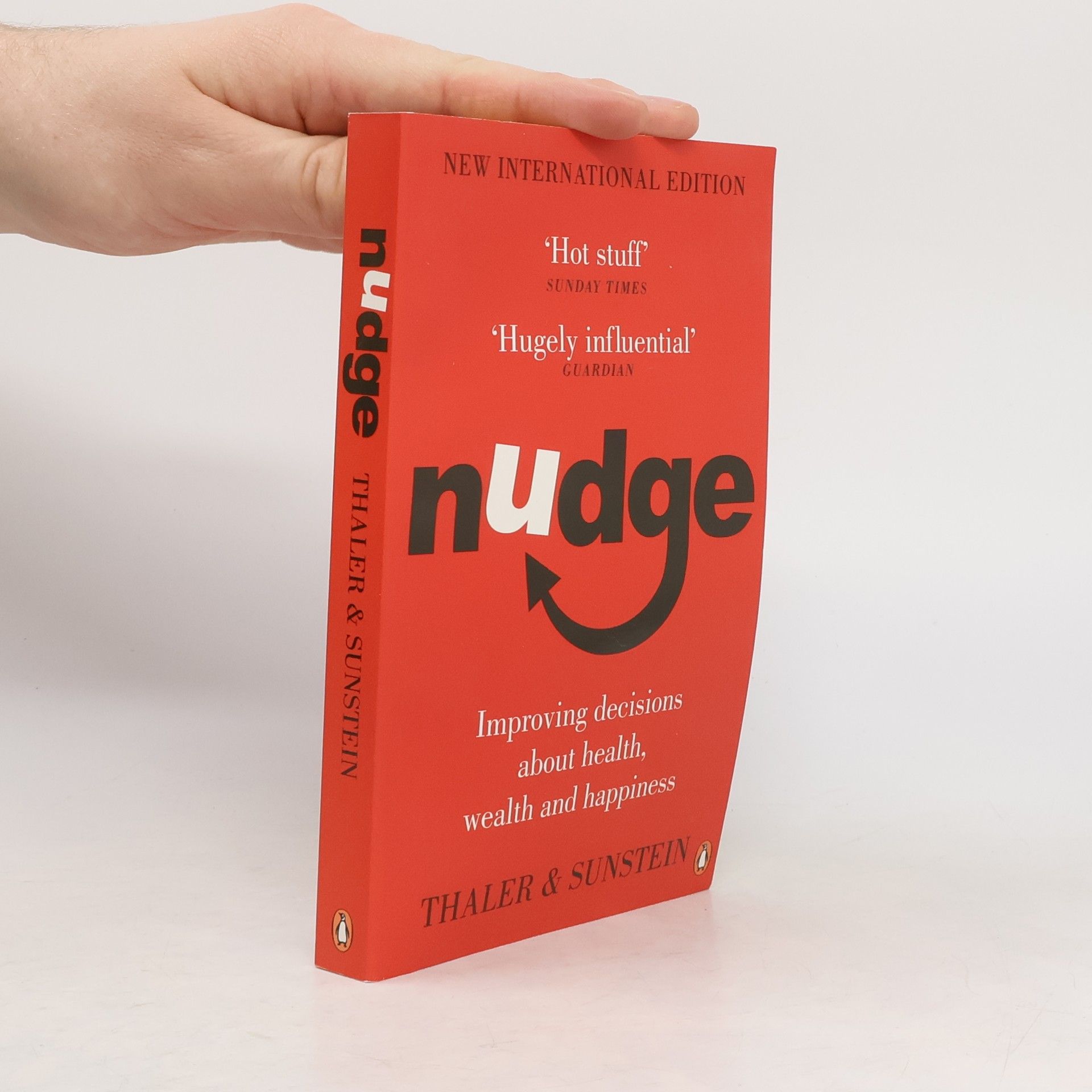

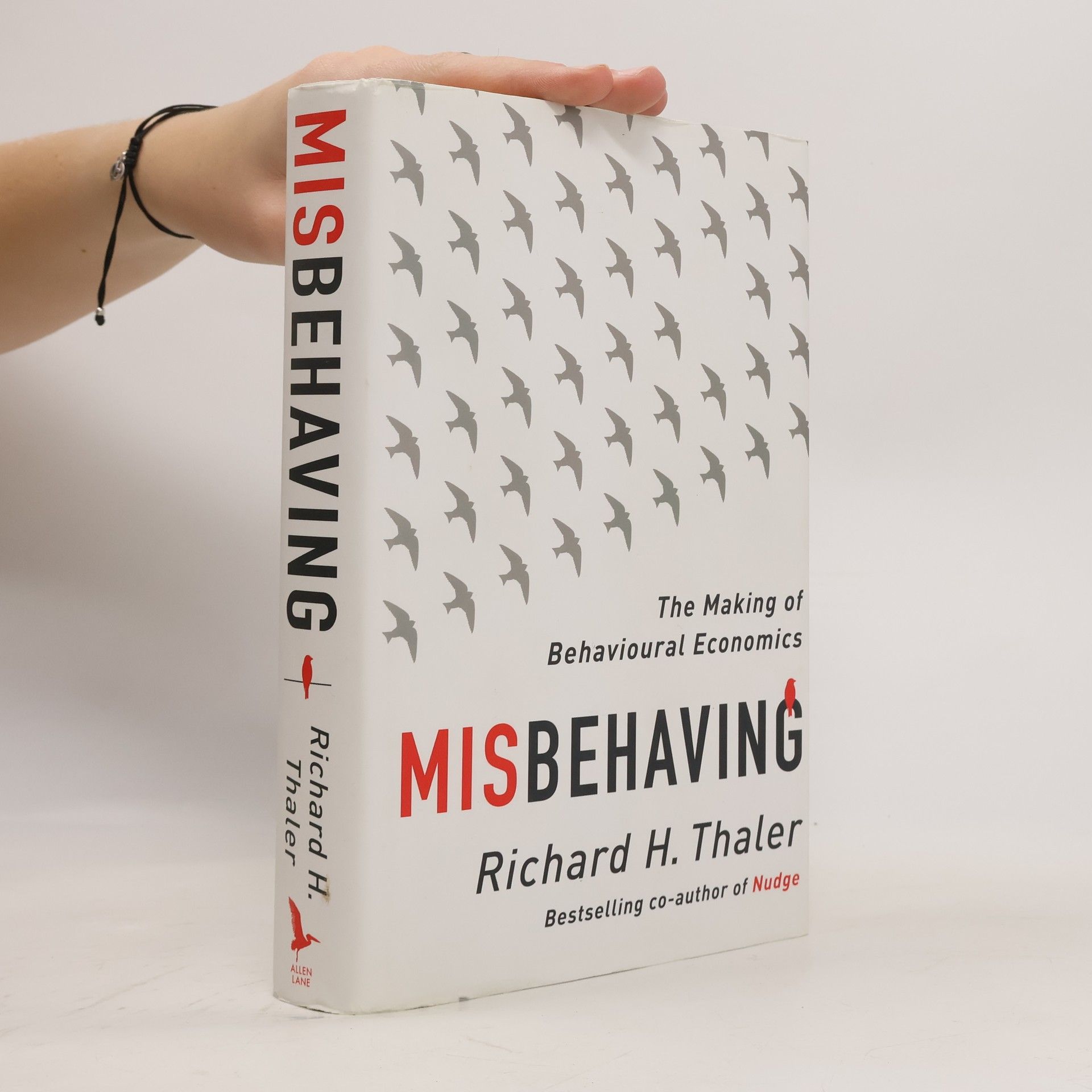
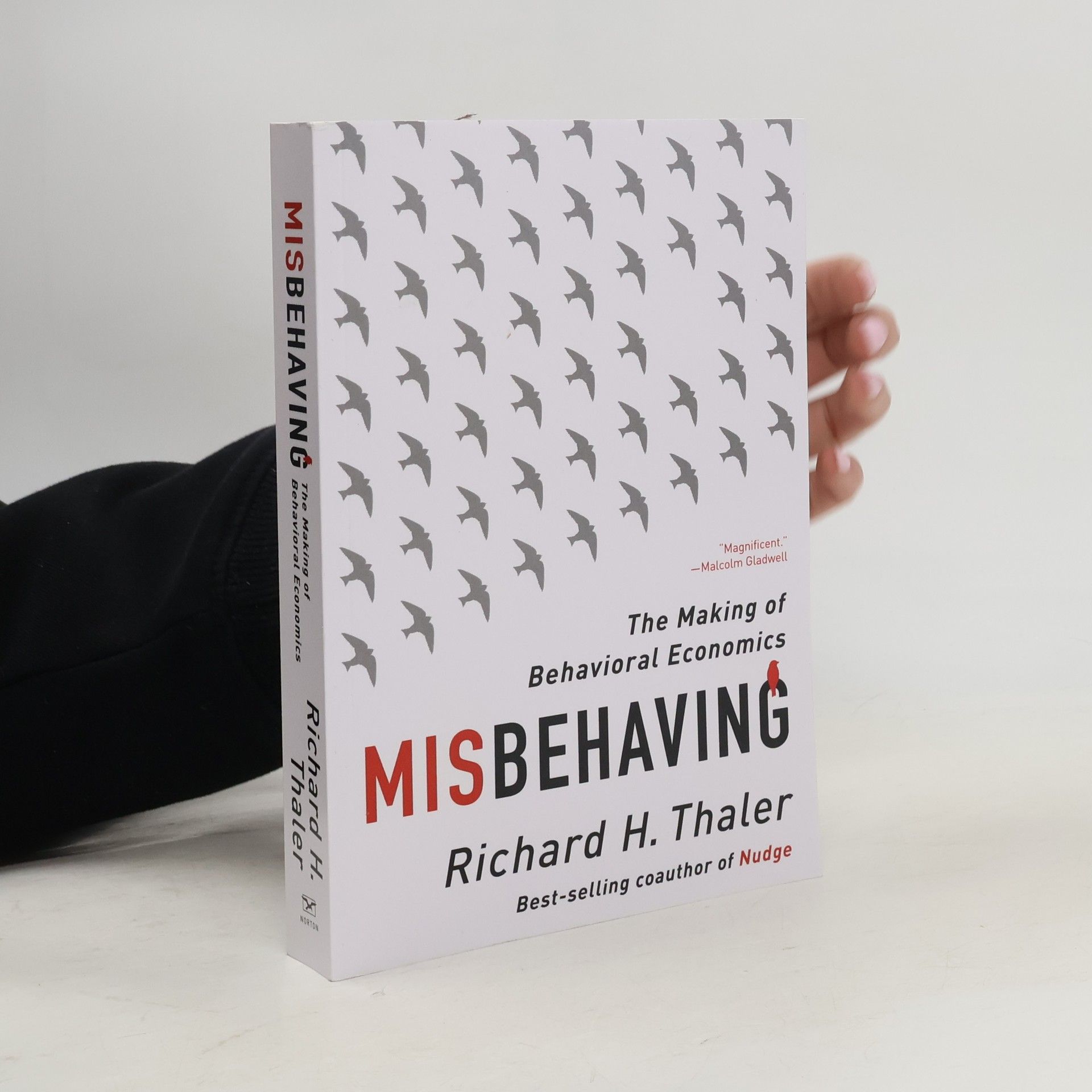
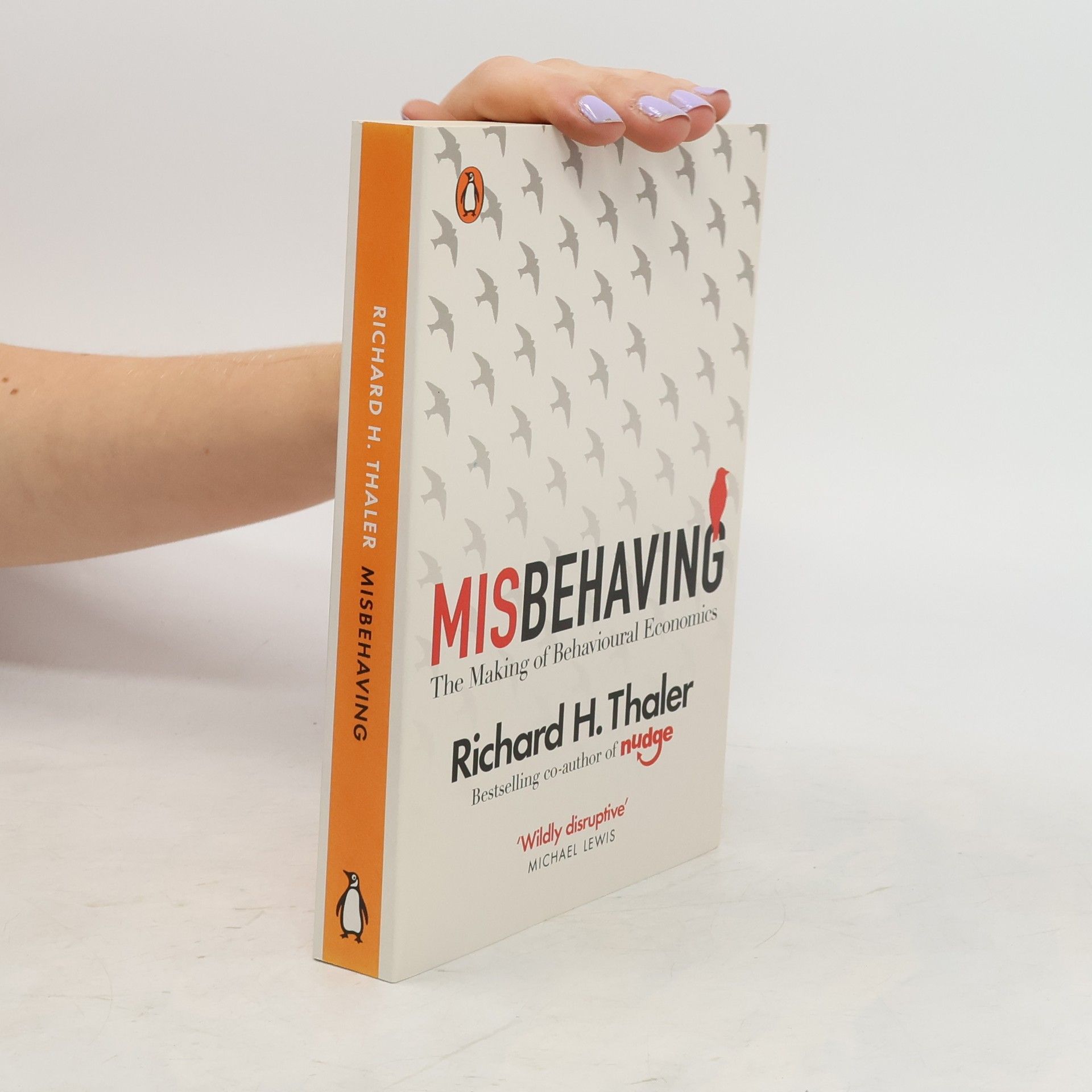
Nudge
Wie man kluge Entscheidungen anstößt | Der Klassiker der Verhaltensökonomie - Tipps vom Wirtschaftsnobelpreisträger
Der Klassiker der Verhaltensökonomie vollständig aktualisiert Seit der Erstveröffentlichung von Nudge im Jahr 2008 und dem Nobelpreis für Richard Thaler 2017 ist dieses Buch zu einem Klassiker geworden. Regierungen auf der ganzen Welt, Geschäftsleute, politische Entscheidungsträger, Wissenschaftler, engagierte Bürger, Verbraucher und Verhaltensökonomen haben sich davon inspirieren lassen. Dieses Buch zeigt, wie wir eine durchdachte Entscheidungsarchitektur nutzen können, um bessere Entscheidungen für uns selbst, unsere Familien und unsere Gesellschaft zu treffen. Jetzt haben Richard Thaler und Cass Sunstein das Buch überarbeitet und dabei ihre Erfahrungen innerhalb und außerhalb der Regierung in den letzten zwölf Jahren sowie eine Fülle neuer Forschungsergebnisse eingebracht. Diese aktualisierte Ausgabe bietet sowohl eingefleischten Fans als auch Neulingen eine Fülle neuer Einblicke in ein breites Spektrum von Themen, mit denen wir in unserem täglichen Leben konfrontiert sind: Gesundheit, persönliche Finanzen, Klimawandel und "Sludge" (Papierkram und andere Belästigungen, die uns davon abhalten, das zu bekommen, was wir wollen) – und das alles unter Einhaltung einer der Grundregeln des Anstupsens: Haben Sie Spaß!
Treatment of Prisoners
- 16 pages
- 1 hour of reading
This work explores the complexities of deprivation of liberty within the criminal justice system, examining its nature, aims, and the consequences of classifying prisoners. It discusses the basic penitentiary paradox and the evolution of prisons in the 21st century. The book outlines contemporary penitentiary standards and policies, detailing treaty standards, recommended norms at universal and regional levels, and the domestic impact of international standards, particularly in Poland. The human dimension of prison life is addressed through the lens of interpersonal relationships among prisoners and staff, highlighting confrontations and notable scandals. The text delves into the social rehabilitation of prisoners, contrasting the ideals of normalization with the realities they face. It reviews key rehabilitation instruments, including outside contacts, work, education, and treatment programs, along with preparations for release. Additionally, the book discusses the intersection of prison life and human dignity, focusing on discrimination, coercion measures, healthcare access, and disciplinary procedures. Finally, it examines control mechanisms, inspections, and procedural guarantees for prisoners at both domestic and international levels, including complaint procedures and monitoring frameworks. The concluding remarks synthesize the findings, supported by a bibliography and appendices for further reference.
Nudge: The Final Edition
- 384 pages
- 14 hours of reading
"Every day we make choices--about food and other purchases, financial investments, our children's health and education, even the causes we champion or the planet itself. Unfortunately, we often choose poorly. Using dozens of eye-opening examples and drawing on decades of behavioral science research, Nudge shows how sensible "choice architecture" can help us to overcome the biases that lead to bad decisions and nudge us toward the best decisions for ourselves, our families, and our society"-- Provided by publisher
Neočekávané chování : příběh behaviorální ekonomie
- 380 pages
- 14 hours of reading
Podtitul: Příběh behaviorální ekonomie. Anglický titul Misbehaving znamená zhruba „nesprávné chování“, tj. takové, které neodpovídá ústřední ekonomické teorii, podle které se člověk chová a rozhoduje tak, aby po racionální úvaze maximalizoval svůj prospěch. Autor ukazuje, že se to zaprvé neděje, a taky proč se to ani dít nemůže, a jaké to má důsledky pro ekonomickou teorii i pro konkrétní fungování ekonomiky. Kniha je mapováním geneze nového přístupu k ekonomii, oboru behaviorální ekonomie, která zohledňuje lidskou iracionalitu, neinformovanost i lenost – na příkladech i s teoretickým výkladem.
Neočekávané chování
- 380 pages
- 14 hours of reading
Podtitul: Příběh behaviorální ekonomie. Anglický titul Misbehaving znamená zhruba „nesprávné chování“, tj. takové, které neodpovídá ústřední ekonomické teorii, podle které se člověk chová a rozhoduje tak, aby po racionální úvaze maximalizoval svůj prospěch. Autor ukazuje, že se to zaprvé neděje, a taky proč se to ani dít nemůže, a jaké to má důsledky pro ekonomickou teorii i pro konkrétní fungování ekonomiky. Kniha je mapováním geneze nového přístupu k ekonomii, oboru behaviorální ekonomie, která zohledňuje lidskou iracionalitu, neinformovanost i lenost – na příkladech i s teoretickým výkladem.
"Coupling recent discoveries in human psychology with a practical understanding of incentives and market behavior, Thaler enlightens readers about how to make smarter decisions in an increasingly mystifying world. He reveals how behavioral economic analysis opens up new ways to look at everything from household finance to assigning faculty offices in a new building, to TV game shows, the NFL draft, and businesses like Uber"--Amazon
Inside the Nudge Unit : how small changes can make a big difference
- 383 pages
- 14 hours of reading
Using the application of psychology to the challenges we face in the world today, the Nudge Unit is pushing us in the right direction. This book presents the unconventional, multi-million pound saving initiative that makes a big difference through influencing small, simple changes in our behaviour.
Misbehaving : the making of behavioural economics
- 432 pages
- 16 hours of reading
When economics meets psychology, the implications for individuals, managers and policy makers are both profound and entertaining. Coupling recent discoveries in human psychology with a practical understanding of incentives and market behaviour, the author enlightens readers about how to make smarter decisions in an increasingly mystifying world.
"Traditional economics assumes that rational forces shape everything. Behavioural economics knows better. Richard Thaler has spent his career studying the notion that humans are central to the economy - and that we're error-prone individuals, not Spock-like automatons. Now behavioural economics is hugely influential, changing the way we think not just about money, but about ourselves, our world and all kinds of everyday decisions. Whether buying an alarm clock, selling football tickets, or applying for a mortgage, we all succumb to biases and make decisions that deviate from the standards of rationality assumed by economists. In other words, we misbehave. Dismissed at first by economists as an amusing sideshow, the study of human miscalculations and their effects on markets now drives efforts to make better decisions in our lives, our businesses, and our governments. Coupling recent discoveries in human psychology with a practical understanding of incentives and market behaviour, Thaler enlightens readers about how to make smarter decisions in an increasingly mystifying world. He reveals how behavioural economic analysis opens up new ways to look at everything from household finance to assigning faculty offices in a new building, to TV quiz shows, sports transfer seasons, and businesses like Uber"--Cover jacket


